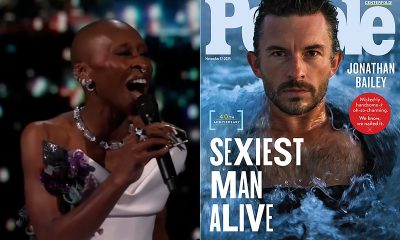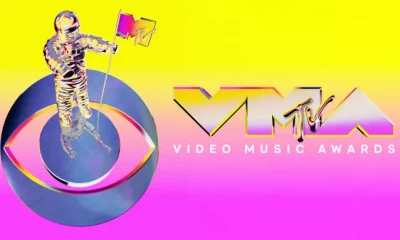Arts & Entertainment
Album roundup: Gaga just so-so on new album ‘Chromatica’
Indigo Girls shine, Adam nails it and Perfume Genius — wtf?
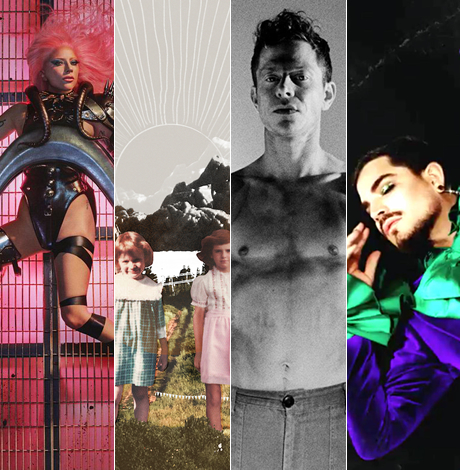
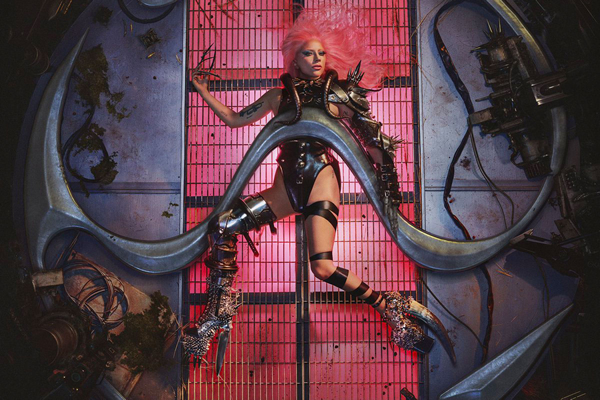
Lady Gaga
Chromatica (**1/2 out of four)
Streamline/Interscope
Although Lady Gaga has never had an out-and-out bomb, she lost her footing a bit with her 2013 album “Artpop.”
Her fans point to its decent chart performance (it debuted at no. 1 and went platinum) and say that’s more perception than reality, but she was starting to experience a law of diminishing returns. The danceclub hits and outrageous fashion upon which she built her brand didn’t resonate the same way five years into her career.
She wisely recognized that and veered hard left making an album with Tony Bennett (of all people; 2014’s “Cheek to Cheek”), recapturing the pop culture zeitgeist with movie debut “A Star is Born” (pleasantly, she actually can act) and go mellow and subdued with her last studio album, 2016’s more singer/songwriter-oriented “Joanne.”
“Chromatica” (out May 29) is her official return to form. It all goes down breezily enough — it’s an easy, catchy listen — yet it’s also not quite the reclaiming of the pop diva throne she clearly intended it to be. It’s good, not great; her fans will love it and it will make a respectable chart dent but creatively she’s painted herself into a corner. While some of her unexpected (at the time) career swerves served her well and were well received, you can’t build a whole career on stunt casting — the meat dress! the Tony Bennett duets! “American Horror Story”! a “normal” album from kooky Gaga! Stuff like that only gets you so far then you’re kinda back where you were five years prior (albeit with an Oscar in tow).
Eventually you have to return to the business of doing what it is you supposedly do and a decade in to her admittedly impressive career, it feels like she’s reaching the bottom of her bag of creative tricks. “Chromatica” suggests to me we’ll look back on her in 50 years more as a Petula Clark (the singer of a decent string of era-defining standards)-type figure rather than a Bette Midler or, heck, even a Kelly Clarkson.
Gaga takes the “Confessions on a Dancefloor” approach here — there’s not a ballad in the batch. Track after track — first single “Stupid Love,” “Plastic Doll,” “Replay” and dozens more — are full of big, luscious, vaguely ’80s-tinged club beats courtesy of producer BloodPop (Justin Bieber, Britney Spears, et. al.), and melodies that take advantage of her impressive set of lungs. The lady can sing — nobody is arguing otherwise.
But it all gets a little samey sounding by the album’s end and a trio of orchestral interludes (dubbed “Chromatica,” “Chromatica II” and “Chromatica III”) sound like they were yanked off some poor man’s Ralph Vaughan Williams imitation attempt and tacked on for contrast and gravitas. They backfire though, sounding like ludicrous non sequiturs.
Lyrically there’s nothing terribly interesting happening but the guest spots — Ariana Grande on second single “Rain on Me,” K-pop girl group Blackpink on “Sour Candy” and Elton John on “Sine From Above” — work slightly better than you’d think. She doubles John’s vocal an octave above to pleasant effect. Glammy, campy (but fun!) final song “Babylon” had me picturing the “Queer as Folk” cast on the dancefloor.
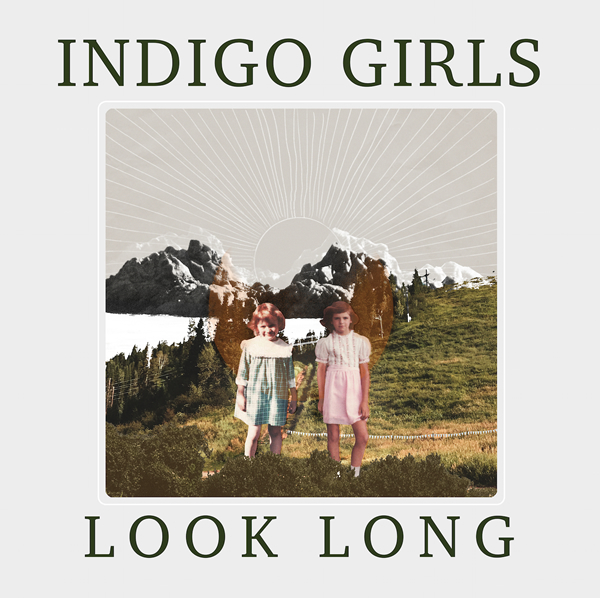
Indigo Girls
Look Long (***1/2)
Rounder Records
It’s easy to take the Indigo Girls for granted. Although it’s been five years since their last studio album (2015’s “One Lost Day”), they keep busy with constant (pre-COVID-19) touring, regular solo outings from both members (Emily Saliers and Amy Ray, both lesbians) and even a live symphony album “Indigo Girls Live with the University of Colorado Symphony Orchestra” (2018).
Their new album “Long Look,” (May 22) however, is a pleasant reminder that not only are they greater vocally than the sum of their parts — their harmonies are truly heavenly — their songwriting is so assured and mature, they’re doing some of their best work now ages after aging (sadly) out of commercial relevance. John Reynolds, who also produced their 1999 album “Come On Now Social,” is back at the reins.
Standout cuts are the groovey, swampy opener “Shit Kickin,’” dance-around-the-campfire-esque “Howl at the Moon,” the plaintive title cut (in which they sound vocally as lovely as Emmylou Harris) and sonic curveball “Favorite Flavor.” Musically overall, this is Americana.
Topics are lyrically varied. “Feel This Way Again” is an urge to teens to savor emotions, album closer “Sorrow and Joy” is a well-crafted examination of ‘80s-era politics and it varies outward from there. Only occasionally (the chorus of “Flavor” or the slightly cloying “Country Radio”) do things feel a tad forced.
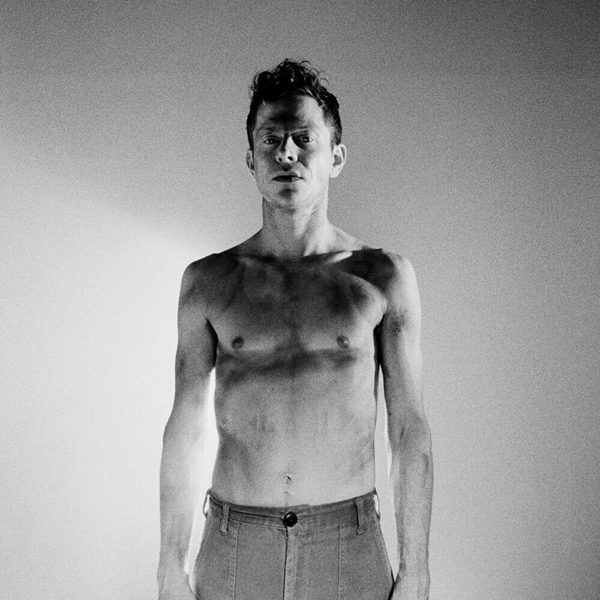
Perfume Genius
Set My Heart on Fire Immediately (*1/2)
Matador
Perfume Genius (aka Michael Hadreas) is back with his fifth album (it dropped mid-May) and while it’s more accessible (which isn’t saying much) than his previous efforts — some tracks actually feel like songs — it’s still a tough listen and something you have to be in the mood for.
Atmospherically, there’s a lot here to appreciate — the dreamy, ethereal “Whole Life,” the gauzy, fuzzy rock guitars on “Describe,” the retro organ underpinnings of “One More Try” and so on. One senses here that no instrumental choice or sonic effect was chosen haphazardly; Hadreas (38 and gay) and producer Blake Mills (who returns after 2017’s “No Shape”) took obvious care and mood and texture, to them, is everything (it certainly trumps melody and tempo).
The degree to which you like this album will be proportional to how much avant garde you can stomach. I tried to just close my eyes and savor it on its own terms but I also couldn’t wait for it to be over. The too-precious-by-half, whispery falsetto vocals on “Jason,” the plodding, uncategorizable “Your Body Changes Everything” and the sonic whiplash of “Some Dream,” which sounds like silly nonsense, had me itching to go put on some Jonas Brothers.
In fairness, though, could this be one of those magical albums that just needs time to seep into your pores? An album you endure on the first listen but can’t get enough of three months later? It’s a fair question, but I’m going with no. Texture solely for the sake of texture — and that’s what this feels like — just isn’t enough for me.
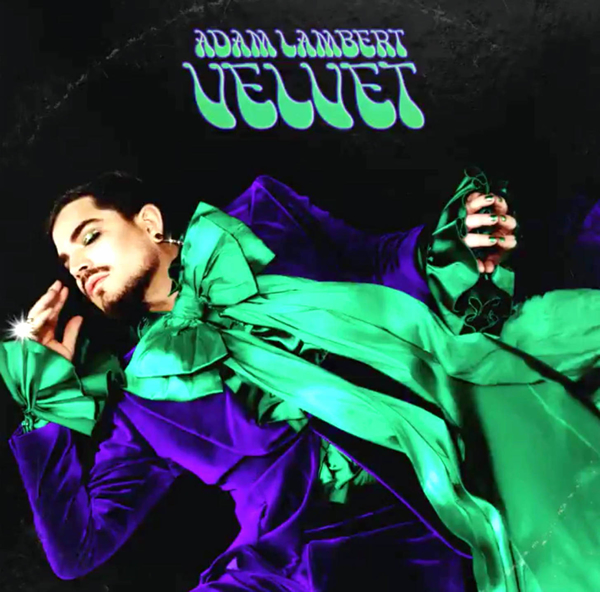
Adam Lambert
Velvet (***1/2)
Empire Distribution
An album you might have missed (somehow I did) that dropped in late March is the new Adam Lambert project “Velvet,” the gay “American Idol” runner-up’s fourth.
Lambert here manages to hit that sonic sweet spot where the production sounds both retro yet uber contemporary. There’s a funky, groovy, ’70s/Stax vibe here but also a 2020-kind of top coat on everything that sounds utterly of the moment.
Stylistically it’s still varied. “Superpower” is slutty and all attitude, “Loverboy” is a neo-disco shuffle, “Comin’ in Hot” is slinky and skanky and “Love Don’t” is a gritty rocker. “Ready to Run” has rock swagger and gospel organ accents. First single “Roses,” a duet with Nile Rodgers (of Chic) has lovely hooks and atmosphere to spare. It’s a romantic kiss-off to a lover who offers gestures but little else.
There are only a handful of slow songs, a straightforward piano ballad (“Closer to You”) and closer “Feel Something,” the album’s only pensive, moody moment.
Only occasionally and fleetingly does Lambert fumble — a weak chorus on “New Eyes,” a couple spots where the hooks aren’t quite enough to undergird the swagger and energy, but even then, Lambert’s shimmering whale of a voice — his calling card — is enough to sustain pleasure throughout. This is my summer car album for sure.
Out & About
Plan your wedding the LGBTQ way
Washington D.C. LGBTQ+ Wedding Expo scheduled for Sunday

Rainbow Wedding Network will host “Washington D.C. LGBTQ+ Wedding Expo” on Sunday, March 1 at 12:30 p.m.
Guests can meet and mingle with a curated selection of LGBTQ-welcoming wedding professionals from across the region, each ready to help bring your vision to life, and spend a beautiful afternoon exploring everything they need to create a celebration that reflects them.
There will be a relaxed, self-guided look at the Watergate’s spaces and amenities, savor signature cocktails and delicious tasting samples, and connect with other couples who are on the same journey.
Visit Eventbrite to reserve a spot.
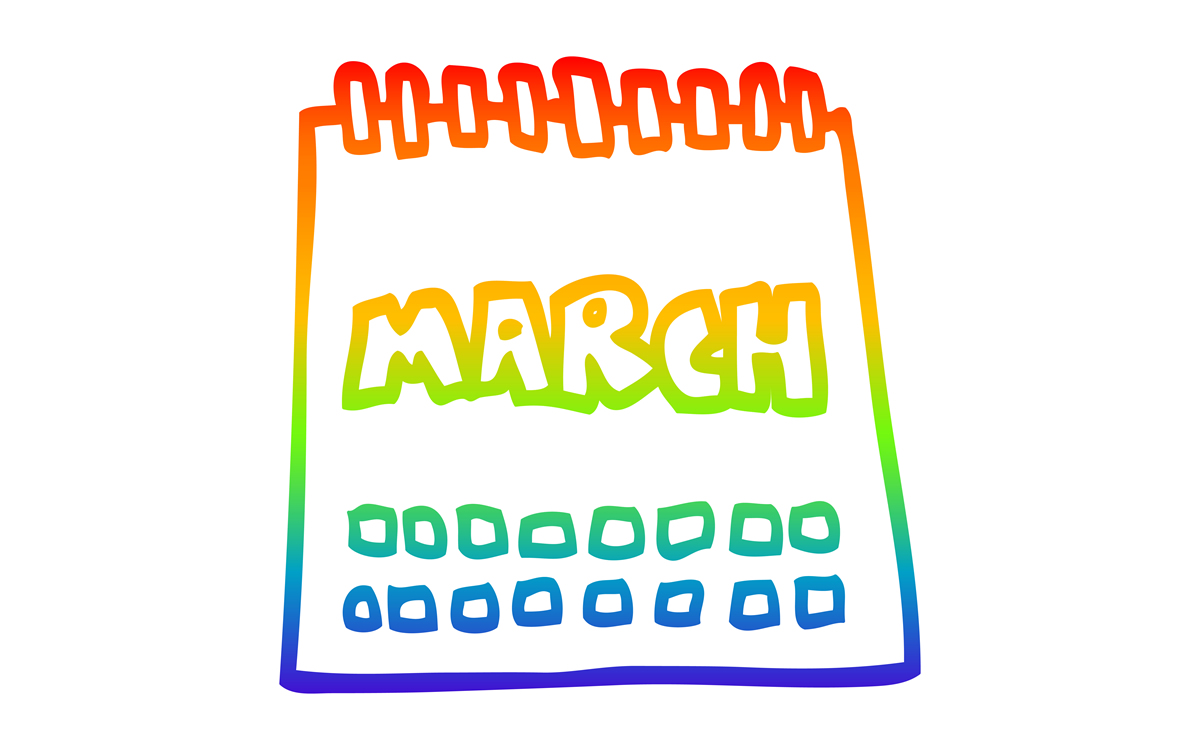
Friday, February 27
Center Aging Monthly Luncheon With Yoga and Drag Bingo will be at 12 p.m. at the DC Center for the LGBT Community. Email Mac at [email protected] if you require ASL interpreter assistance, have any dietary restrictions, or questions about this event.
Go Gay DC will host “LGBTQ+ Community Happy Hour Meetup” at 7 p.m. at Freddie’s Beach Bar and Restaurant. This is a chance to relax, make new friends, and enjoy happy hour specials at this classic retro venue. Attendance is free and more details are available on Eventbrite.
Trans Discussion Group will be at 7 p.m. on Zoom. This group is intended to provide an emotionally and physically safe space for trans people and those who may be questioning their gender identity/expression to join together in community and learn from one another. For more details, email [email protected].
Saturday, February 28
Go Gay DC will host “LGBTQ+ Community Brunch” at 11 a.m. at Freddie’s Beach Bar & Restaurant. This fun weekly event brings the DMV area LGBTQ+ community, including allies, together for delicious food and conversation. Attendance is free and more details are available on Eventbrite.
The DC Center for the LGBT Community will host “Sunday Supper on Saturday” at 2 p.m. It’s more than just an event; it’s an opportunity to step away from the busyness of life and invest in something meaningful, and enjoy delicious food, genuine laughter, and conversations that spark connection and inspiration. For more details, visit the Center’s website.
Black Lesbian Support Group will be at 1 p.m. on Zoom. This is a peer-led support group devoted to the joys and challenges of being a Black lesbian. You do not need to be a member of the Beta Kappa Chapter or the Beta Phi Omega Sorority in order to join, but they do ask that you either identify as a lesbian or are questioning that aspect of your identity.Send an email to [email protected] to receive the zoom link.
Sunday, March 1
LGBTQ+ Community Coffee and Conversation will be at 12 p.m. at As You Are. This event is for people looking to make more friends and meaningful connections in the LGBTQ community. Attendance is free and more details are available on Eventbrite.
Monday, March 2
“Center Aging: Monday Coffee Klatch” will be at 10 a.m. on Zoom. This is a social hour for older LGBTQ+ adults. Guests are encouraged to bring a beverage of choice. For more information, contact Adam ([email protected]).
Tuesday, March 3
Universal Pride Meeting will be at 7 p.m. on Zoom. This group seeks to support, educate, empower, and create change for people with disabilities. For more details, email [email protected].
Wednesday, March 4
Job Club will be at 6 p.m. on Zoom upon request. This is a weekly job support program to help job entrants and seekers, including the long-term unemployed, improve self-confidence, motivation, resilience and productivity for effective job searches and networking — allowing participants to move away from being merely “applicants” toward being “candidates.” For more information, email [email protected] or visit www.thedccenter.org/careers.
Center Aging Women’s Social and Discussion Group will be at 6 p.m. on Zoom. This group is a place where older LGBTQ+ women can meet and socialize with one another. There will be discussion, activities, and a chance for guests to share what they want future events to include. For more information, email [email protected].
Thursday, March 5
The DC Center’s Fresh Produce Program will be held all day at the DC Center for the LGBT Community. People will be informed on Wednesday at 5 p.m. if they are picked to receive a produce box. No proof of residency or income is required. For more information, email [email protected] or call 202-682-2245.
Virtual Yoga Class will be at 7 p.m. on Zoom. This free weekly class is a combination of yoga, breathwork and meditation that allows LGBTQ+ community members to continue their healing journey with somatic and mindfulness practices. For more details, visit the DC Center’s website.
a&e features
Transmission DC breathes new life into a storied sound space
A fresh home for boundary-pushing culture on H Street

Late last year, phoenix-style, a fresh home for boundary-pushing culture arose on the H Street corridor. Transmission DC – a queer, trans, and POC-owned, operated, and centered community-focused venue – powered on in the former home to the Rock & Roll Hotel (famously, not a hotel, but very much rock & roll). Transmission (1353 H St., N.E.) arrives secure in its mandate – or even birthright – to provide a place to celebrate creativity and music through a lens of inclusivity and respect.
Transmission’s team brings experience, but also representation. Owners/partners Kabir Khanna (who is also programming director), Katii B, Ellie McDyre, and Kelli Kerrigan together previously managed 618 productions, a venue in Chinatown, crafting “some of D.C.’s freakiest parties, raves, and mosh pits” they note.
They packed up operations last fall to a space curated specifically for D.C.’s underground music and culture scene, building their efforts in Chinatown to bring in more fans in queer and POC circles.
Transmission, Khanna points out, is built on DIY values. In the music scene, DIY means that promoters and organizers – often disconnected from the mainstream and part of marginalized communities – build shows and programs collaboratively, but independently from institutions, supporting each other as smaller, independent venues close. Here, Transmission aims to ensure that those putting together these underground inclusive shows have a more permanent and stable home, can have access to resources, and can provide more sustainable income to artists. “We’re trying to get more people to support and enjoy the music, and also give artists and organizers within the DIY community more structure and a larger cut,” says Khanna.
Khanna also notes that Transmission operates “under the principles of safety, inclusivity, and respect.” McDyre added that even at venues that claim inclusivity, that statement might not take place in practice. We’re “not just pitting up a rainbow flag,” says McDyre, but as some of the owners are trans and POC, audiences can see themselves reflected at the top.
Much like the DIY nature of the music community, the Transmission owners brought a DIY ethos to turning around their space.
In March 2020 – the height of COVID lockdowns – Rock & Roll Hotel suddenly shuttered, though not due to the pandemic; instead, the venue claimed that decreasing sales and increasing competition led to the closure. For 14 years, it was the central spot for cheap beer and lesser-known and celebrated acts. The space stood vacant for more than five years, until Transmission turned the power back on.
“When we got into the space, it was effectively abandoned for years,” says Khanna. “There was a ton of mold, and paint primer covering all surfaces. It was nearly falling apart.” Khanna noted that many music venues like this one, regardless of how well it was maintained, “get the shit kicked out of it,” given the nature of shows. The team called in mold removal contractors, ripped up most of the floorboards, and started fresh.
Transmission’s first floor is styled as a stripped-down black box: the better to take in the music. “It’s minimal on purpose to act as a canvas for set design and music,” without a specific aesthetic, says Khanna. Moving upstairs, the second floor has been opened up, removing some walls, and now has a larger dance area than the first floor. Beyond the first two performance levels, and a holdover from Rock & Roll Hotel, is the rooftop. Though without a stage, the rooftop space is filled with murals splashed across the walls, with a full bar. Transmission’s current capacity is 496, but the team is looking to grow that number. Transmission will also leverage the full kitchen that Rock & Roll Hotel operated, bringing in Third Hand Kitchen to offer a variety of food, including vegan and vegetarian options.
Khanna pointed out an upcoming show reflective of Transmission’s inclusive ethos: Black Techo Matters on Feb. 27. The event is set to be “a dynamic, collaborative night of underground electronic music celebrating Black History Month.” Khanna says that techno came from Black music origins, and this event will celebrate this genesis with a host of artists, including DJ Stingray 313, Carlos Souffront, and Femanyst.



